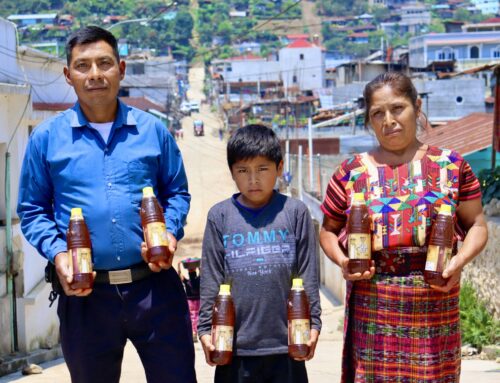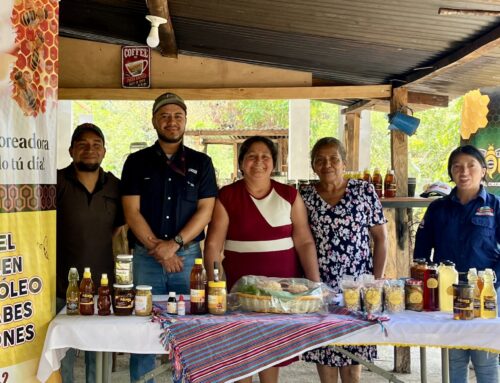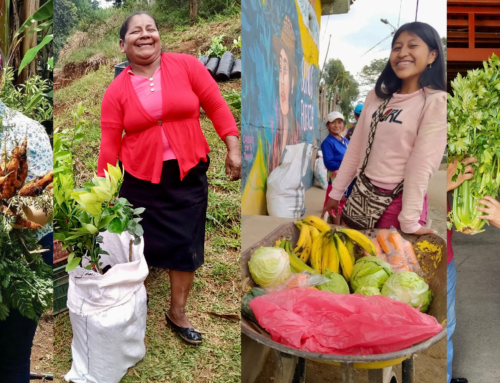 Around the world, farmers are feeling the challenges pile up once again. Coffee rust. Low coffee prices. Political strife. Climate change. And now a pandemic has impacted their livelihoods and infrastructure, causing greater stress and once again requiring them to adapt and evolve. For the farming families we work with, the only constant is change – but when they’re prepared to face such challenges, they no longer focus on merely surviving.
Around the world, farmers are feeling the challenges pile up once again. Coffee rust. Low coffee prices. Political strife. Climate change. And now a pandemic has impacted their livelihoods and infrastructure, causing greater stress and once again requiring them to adapt and evolve. For the farming families we work with, the only constant is change – but when they’re prepared to face such challenges, they no longer focus on merely surviving.
2020 was a prime example of how natural disasters — including two powerful hurricanes that struck back-to-back in November — could be the final straw for some, now leaving their homes and seeking a more secure future elsewhere. The United Nations World Food Programme (WFP) stated, “With homes and farms destroyed, food stocks running low and job opportunities shrinking, nearly 15 percent of people surveyed by WFP in January 2021 said that they were making concrete plans to migrate.”
There are many push and pull factors that cause people to migrate, but we know that climate change has become front and center in those decisions. How can we as a community help support those most impacted by these changes? What can we do to ensure stability as the world continues to warm?
This Earth Day, we know you’ve been thinking about these issues – perhaps they’ve even kept you up at night. And frankly, we don’t have an answer. We do, however, have evidence of success, using agroecology – farming in harmony with nature – to bolster food security and livelihoods with our partner communities throughout Latin America. Our programs have become a critical safety net in the face of climate crises and disasters, giving families a reliable source of organic food to eat, share, and sell, and boosting resilience to climate change. And we’ve helped communities establish a deep well of local knowledge. Now, farming families are beginning to build on this work, plan for the future, care for their land and ecosystems, with a long-term view, rather than reacting to short-term, immediate crises.
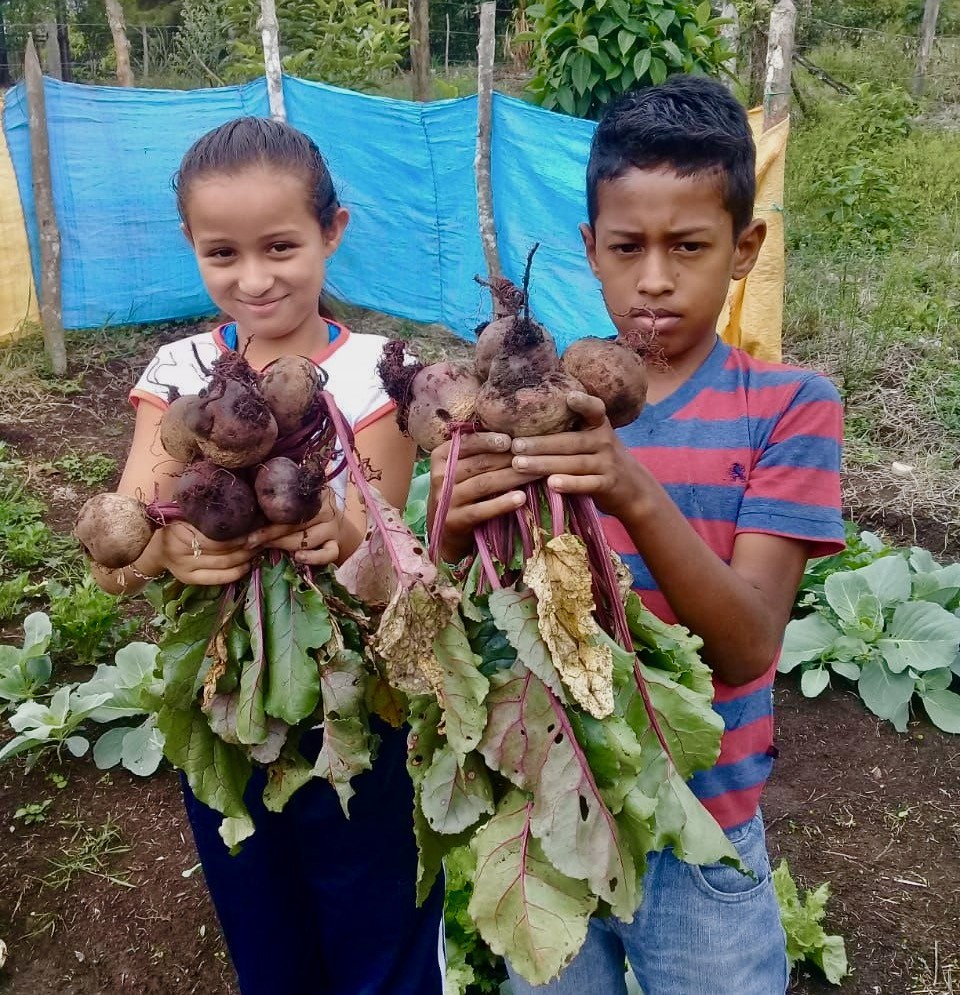
What does it look like when people start thinking long-term?
In Nicaragua, SOPPEXCCA has added new gardens at 10 area schools, where students are learning to grow, prepare, and eat fresh food. This has far-reaching implications as children share their newfound knowledge with their families and communities, and put it to use. A few years ago, we established the Mercadito Nutri-Hogar, a market where women coffee farmers sell produce they grow on their farms, alongside coffee. Now, these women have extra income for their families’ daily needs, and to send their daughters – the next generation of entrepreneurs – to college.
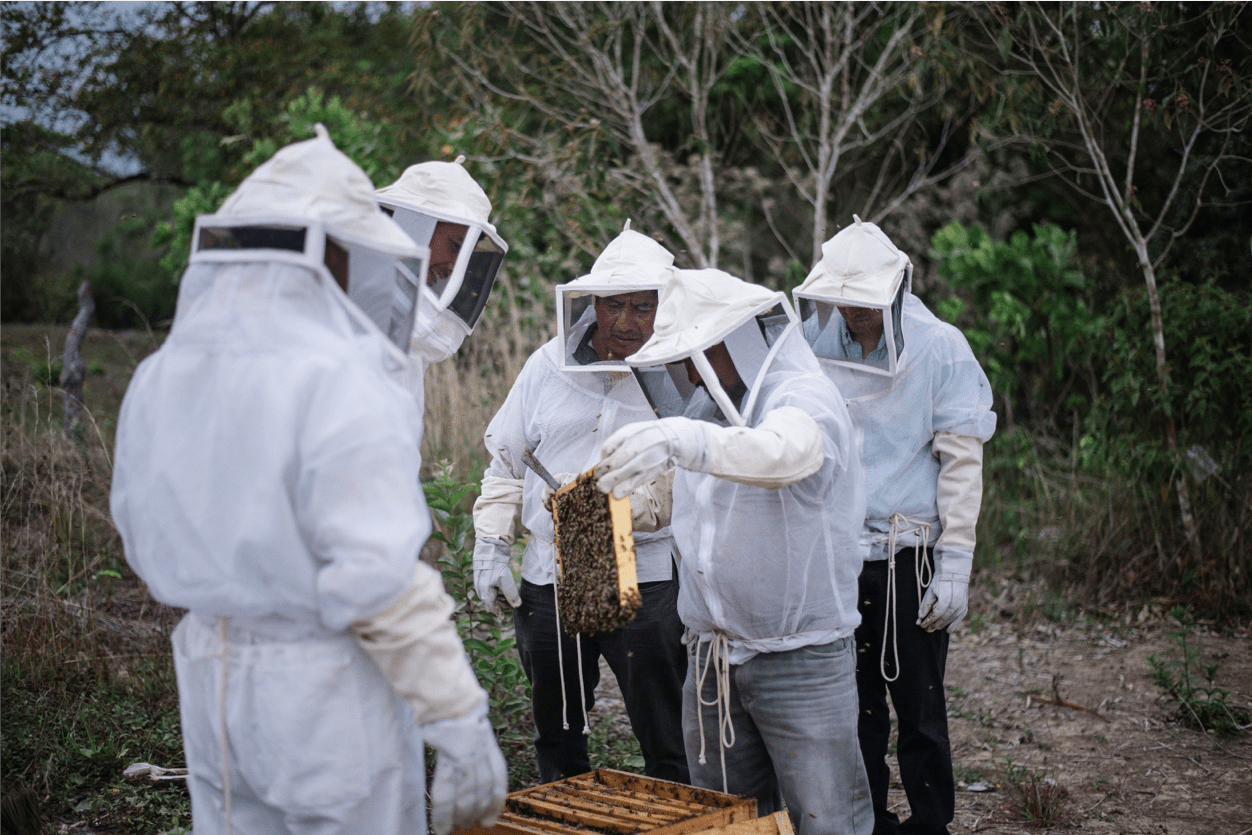 At three of our co-op partners, beekeeping is their chosen strategy for a better future. Beekeepers are restoring native agroforestry systems to feed pollinators year-round instead of buying sugar. They’re using their income from honey sales to purchase food, reinvest in their farms, and add new on-farm ventures to supplement their coffee livelihoods.
At three of our co-op partners, beekeeping is their chosen strategy for a better future. Beekeepers are restoring native agroforestry systems to feed pollinators year-round instead of buying sugar. They’re using their income from honey sales to purchase food, reinvest in their farms, and add new on-farm ventures to supplement their coffee livelihoods.
And this year, the Maya Ixil cooperative will plant 42,000 trees and cover crops on 205 farms to reduce food insecurity, restore environmental health, and feed bees and people. COMEPCAFE, is building a new tree nursery and planting 16,875 trees– hardwoods, bananas and plantains, bamboo and fruit trees–for food production, shading coffee plants, and improving water conservation and soil health for 150 families.
These are just a few examples of the way our work connects small scale farming communities with the resources they need to nurture their piece of the planet. As conditions shift, our partners will be able to do the same. They are resilient because they have to be: their livelihoods depend on it. The UN recently issued a report on global food insecurity, in which the authors estimate that one billion people will face water and food shortages by 2050. We must come to terms with the dire future that most will face – and that means going beyond planting new coffee varieties or shifting coffee trees to higher elevations. Farmers need to be prepared so they can thrive, not merely survive.
 At Food 4 Farmers, we’re focused on making sure small-scale farmers can grow and eat healthy food every day, instead of relying on processed nutrient-deficient food, shipped from elsewhere, with high energy costs. We succeed when people have control over their food and health, in a way that nurtures the Earth.
At Food 4 Farmers, we’re focused on making sure small-scale farmers can grow and eat healthy food every day, instead of relying on processed nutrient-deficient food, shipped from elsewhere, with high energy costs. We succeed when people have control over their food and health, in a way that nurtures the Earth.
Happy Earth Day!

